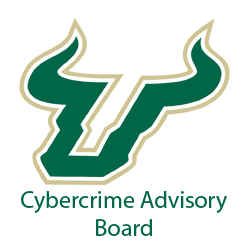
The Internet is both an AWESOME and SCARY place. It is like any other tool, proper training, and usage dictate success.
Criminals use the Internet to broaden their reach, to increase the scope and number of victims, of traditional crimes such as fraud, extortion, identity theft, counterfeit cashier’s checks, job scams, Ponzi/pyramid schemes, in addition to Internet related crimes such as business e-mail compromise, Ransomware, credential harvesting, credential stuffing, spear phishing, and victimization of women and children.
In this article, I will focus on steps women can take to make themselves safer on Social Media. One of the first mistakes individuals of both sexes, make is not understanding that www stands for world wide web, not my friends and family. The items we post on Social Media are accessible by everyone, so we should think before we press return. This is especially true for women and children. “Bad Guys” criminals and predators use Social Media as a hunting ground for their prey. They take the volumes of seemingly innocuous information you post online and utilize it to victimize you.
How can us ladies make ourselves safer online? First and foremost, we keep our personal life personal. The entire world does not need to know we are having relationship troubles, financial issues, problems with our kids, or issues at work. These incidences are invitations to predators. The next step is to create a generic e-mail address specifically for use with social media sites. NEVER use your work e-mail address to sign up for anything. The fact that we use the same passwords across accounts puts our employer’s networks at risk for a credential stuffing attack. I somewhat understand the need to use Social Media for marketing on the business side. I say somewhat because, I have not seen a business return from LinkedIn. Instead of being what it is advertised as a professional networking site, it is more like a Facebook/Meta for professionals. The members gauge success on the number of comments and “likes” they receive from their posts, much like kids on Instagram and Snapchat. It is very easy to post too much information about yourself on LinkedIn. Limit the amount of information you disclose about yourself or just don’t use it. This should be your own personal policy with most social media sites, to include online dating.
Revenue from online dating is second only to pornography on the Internet, it is a $2 billion a year industry. There are 54 million singles in the United States, keep in mind about half of them lie about themselves online. So how can women protect themselves? As stated above, keep your personal information to a minimum on all social media sites. You don’t want to provide limited information on a dating site and your whole life story on Facebook. Create an e-mail address, and password, specifically for online dating sites. This way you can compartmentalize your online dating communication. Pay the website fees with a pre-paid credit card, to keep information about yourself to a minimum and prevent credit card fraud. Do not provide your home address or specific employment information, use generalities to describe yourself. Do not post photographs that identify your home, work, or friends. When you find a good match, perform your own due diligence searches. What does that mean, Google the individual and follow the trail laid out in front of you. If it all looks good, agree to meet in a public place during the day.
Also, by limiting personal information on Social Media you make it much harder to be victimized by a spear phishing attack. Let me explain, the “bad” guys take the information you post and aggregate it to develop a profile of you. The information collected to create the profile could contain colleges you attended, employer information, job title and description, to include your work e-mail address, groups, and affiliations you belong to or follow, and contacts. With this information, an attacker can craft several e-mails, infected with malware, that is familiar enough to you that they will be opened. Once the e-mail is opened, the attacker may ask you to do something like re-enter username and password, click on a link or an attachment to review something. All the actions listed can activate the malware resulting in the attacker compromising your computer and your employer’s network.
The best way to stay safe on Social Media is to limit your presence. The smaller your Internet footprint is, the harder it is for the “bad” guys to build a profile and victimize you!!!
If you are interested in additional information or cyber security awareness training for your employees, please contact the ARRUDA Group at (813) 382-0859 or info@arrudagroup.com




